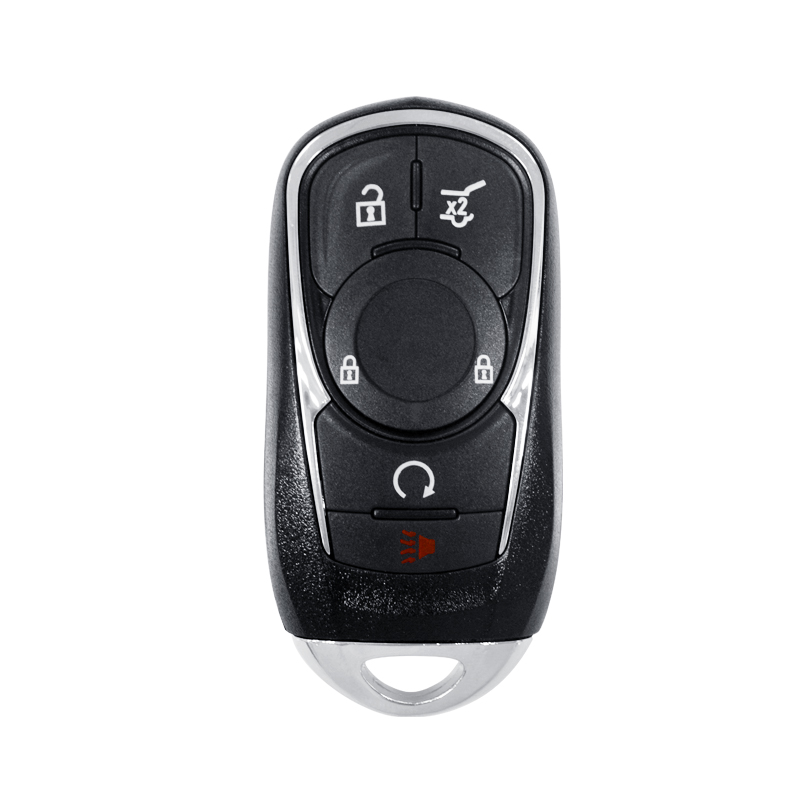Flip keys, also known as switchblade keys, are increasingly popular due to their convenience, compactness, and modern design. Ensuring the durability and reliability of these keys is crucial for manufacturers to maintain customer satisfaction and brand reputation. This article explores the various strategies and technologies flip key manufacturers employ to guarantee their products' longevity and dependability.

1. High-Quality Materials
The foundation of any durable product lies in the materials used. Flip key manufacturers prioritize the selection of high-quality materials to withstand everyday wear and tear.
Metals: The key blade is typically made from robust metals such as stainless steel or hardened steel, which resist bending and breaking.
Plastics: The key fob's body is crafted from high-grade plastic or reinforced polymer, ensuring it can endure drops, impacts, and exposure to various environmental conditions without cracking or degrading.
2. Precision Engineering
Precision engineering is essential for the proper functioning of flip keys. Manufacturers use advanced machinery and techniques to create components with exact specifications.
CNC Machining: Computer Numerical Control (CNC) machining ensures that each key blade is cut to precise dimensions, providing a perfect fit in the ignition and locks.
Injection Molding: This process is used for crafting the plastic components of the key fob, ensuring consistency and accuracy in every piece produced.
3. Rigorous Testing
To ensure reliability, flip key manufacturers subject their products to extensive testing before they reach the market.
Durability Tests: Keys are exposed to extreme conditions, including temperature variations, humidity, and mechanical stress, to simulate real-world use.
Cycle Testing: The flip mechanism is tested through thousands of cycles to ensure it operates smoothly and reliably over time.
Impact Testing: Keys are dropped and subjected to impacts to test their resistance to physical damage.
4. Corrosion Resistance
Exposure to moisture and varying environmental conditions can lead to corrosion, compromising a key's functionality. Manufacturers address this issue through several methods:
Coatings and Platings: Metal parts are often coated with anti-corrosion finishes, such as nickel or chrome plating, to protect against rust and wear.
Sealed Components: Key fobs are designed with sealed components to prevent moisture ingress, safeguarding the internal electronics and mechanical parts.
5. Advanced Electronics
Modern flip keys often incorporate electronic components for remote locking, unlocking, and keyless entry systems. Ensuring the reliability of these electronics is paramount.
Robust Circuit Boards: High-quality printed circuit boards (PCBs) are used to withstand vibrations and impacts.
Battery Longevity: Manufacturers use long-lasting batteries and efficient power management systems to ensure the electronic functions of the key remain operational for extended periods.
6. Quality Control
Quality control processes are integral to maintaining high standards. Flip key manufacturers implement stringent quality control measures at every production stage.
Inspections: Each key undergoes thorough inspections to check for defects and ensure adherence to specifications.
ISO Certification: Many manufacturers adhere to ISO 9001 standards, which outline requirements for a quality management system, ensuring consistent product quality and continual improvement.
7. Customer Feedback and Continuous Improvement
Listening to customer feedback and continuously improving products are vital for long-term reliability and customer satisfaction.
User Feedback: Manufacturers collect and analyze feedback from users to identify common issues and areas for improvement.
Product Iteration: Based on feedback and technological advancements, manufacturers regularly update and refine their designs to enhance durability and functionality.
Conclusion
Ensuring the durability and reliability of flip keys involves a multifaceted approach, from using high-quality materials and precision engineering to rigorous testing and quality control. By focusing on these areas, flip key manufacturers can provide products that meet the demands of modern users, offering convenience, longevity, and peace of mind. As technology continues to evolve, ongoing innovation and improvement will remain central to maintaining the high standards expected of flip key products.

 Englishen
Englishen











 No.991 Xingxiu Road,Taiwanese Investment Zone, Quanzhou, Fujian Province,P.R.China
No.991 Xingxiu Road,Taiwanese Investment Zone, Quanzhou, Fujian Province,P.R.China +86 13960286508
+86 13960286508
 3D Reality Showroom
3D Reality Showroom
